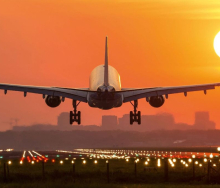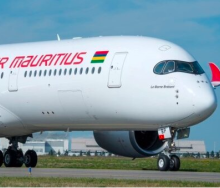In August, HotelTechReport, an online research platform for hoteliers, released a detailed report on how the hotel industry has dramatically evolved this year.
*The demand is for smart everything. In rooms this translates to wireless charging of devices; digital controls for temperature, light and power; in-room tablets; sound-proofing technology to minimise noise; voice-activated controls for services like housekeeping; smart mirrors that allow guests to watch television while brushing their teeth or shaving; digital room keys; concierge video chats; and smart televisions.
*The focus on environmental sustainability has increased, moving hotels to strive to obtain Leadership in Environmental Design (LEED) certification, which means committing to using solar power as far as possible; minimising water usage with things like slower-flow shower heads as an example; steering away from plastic as far as possible; having motion sensors that turn off power when no motion is detected; introducing recycle bins in guest rooms; and offering meat alternatives in F&B.
*Allied Market Research, a company with expertise in analysing niche markets, has produced an analytical report of recent Global Market Hotel Trends, for business, boutique, resort, casino and transit hotels. The results depict a growing requirement for safety and hygiene in hotel marketing material, which it would be fair to concede probably resulted from the COVID-19 pandemic. Additionally, there has been a decrease in corporate business for hotels worldwide, largely due to the global move towards working from home, as well as virtual rather than in-person corporate conferences and events. However, the good news for tourist hotels is that these virtual corporate environments appear to have inspired a stronger demand for vacations. Furthermore, there is a greater emphasis on domestic travel than was the case prior to the COVID-19 lockdowns.
*In the Global Budget Hotel Market Report 2023, published by market research and business consulting company Dataintelo, an in-depth analysis of the key market trends that are shaping this hotel sector in North and South America, Asia-Pacific, Middle East, Africa and Europe, showed that the budget sector’s highest revenue came from the US, followed by the UK and France. Not surprising since these countries are listed on the United Nations World Tourism Organization’s most-visited tourist destinations. Additionally, the report uncovered that the hotel market in the Middle East, which was previously known for luxury stays, has seen a shift towards the budget category. It could be that the current worldwide surge in inflation is largely accountable for this shift.
Travel News spoke to Debbie Venter, who is both a wholesale and retail travel consultant. She concurred that travellers who were previously four-star customers, were opting for three-star hotels to save disposable income for tourist activities. She added that she had experienced a shift on the international front, particularly with customers travelling to Europe, from hotel stays to cruising, which is viewed by many as offering greater value for money than traditional hotel accommodation.















